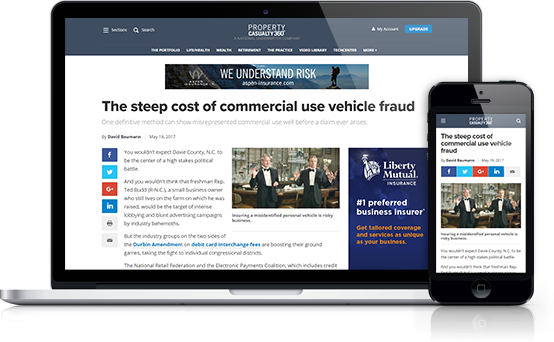The relationship between an insurance agent or broker and the person acquiring insurance requires that the agent treat the insured with the utmost good faith. An insurance agent or broker is obligated to explain to the potential insured the coverages available and to help him understand the relationship between the insured and the insurer. The agent or broker who lies to a potential insured risks E&O claims for fraud or negligent misrepresentation. If the insured can prove fraud or negligent misrepresentation by the agent or broker to the insured, serious damages can be assessed. The insured often has a difficult time suing an agent or broker for fraud. Because the burden of proof is more than a preponderance, or 50 percent plus 1, the plaintiff must prove fraud by clear and convincing evidence. Failure to provide such evidence will defeat the suit. In the following case, the agent made multiple representations that the plaintiffs considered false and fraudulent but were not capable of proof. The Court of Appeal concluded they were statements of opinion or of future events that are not actionable. The lesson all insurance agents and brokers should recognize is to limit sales pitches to statements of opinion rather than absolute statements that can–if not true–be trotted out as evidence of fraud. In addition, the agent or broker must make it a practice to always speak the truth to insureds and potential insureds. Case background In Turner v. Milliman, 671 S.E.2d 636, 381 S.C. 101 (S.C.App. 01/12/2009), the Court of Appeals of South Carolina concludes that the insureds had no viable cause of action against their insurance agent. John and Charlene Turner (collectively “the Turners”) appealed the trial court’s grant of summary judgment in favor of the respondents. On appeal, the Turners argued that the trial court erred in finding that their claims were barred by the 3-year statute of limitations; in finding that Douglas Milliman’s representations to the Turners were insufficient to support a claim for fraud or negligent misrepresentation; in holding that Milliman’s statements to John Turner were not attributable to MidAmerica Life Insurance Co. or Consumer Benefits of America Co. (CBA) because Milliman was an insurance broker and not an insurance agent; and, in holding that Turner’s wife did not have standing to sue respondents. In November 1996, John Turner needed health insurance coverage after he left his prior employment at an accounting firm. One of Turner’s customers recommended Milliman, a local insurance agent, whom John Turner subsequently contacted. At the time, Turner was employed at the family’s radiator service business. The Turners and Milliman discussed John Turner’s health insurance options, specifically the option to purchase group health insurance. Milliman represented to the Turners that a group policy with CBA would be a good option because the future premiums would not increase dramatically, or as dramatically as the premiums with individual insurance plans. Turner also alleged that Milliman stated group health insurance would be beneficial because: John Turner was at an age when he could start developing medical problems and this policy would allow him to keep his coverage; companies writing individual insurance policies were going out of business and the prices of those policies were skyrocketing; and the only way people could afford insurance was to purchase group insurance. John Turner further stated that Milliman told him CBA acted as a watchdog over the insurance industry for the benefit of its members and would notify its members when better group coverage was available. Insurance was issued and the premium increased regularly until it became so expensive the plaintiffs could not pay and the policy was cancelled. On Dec.19, 2003, the Turners initiated suit against respondents for fraud, negligent misrepresentation, and violation of the South Carolina Unfair Trade Practices Act. The Turners alleged that Milliman, as an agent of respondents, made false representations that induced Turner to sign the insurance application and purchase the group policy from CBA. The Turners stated that because of the excessive premium increases, they were unable to maintain the policy, which ultimately caused them to suffer damages. In turn, each respondent filed a motion for summary judgment based on the statute of limitations, a lack of material evidence to support the Turners’ causes of action, and Charlene Turner’s lack of standing as a real party in interest. The Turners contend that the trial court erred in finding Milliman’s representations to the Turners did not support an action for fraud or negligent misrepresentation because the statements were made as part of a general scheme to induce the Turners to purchase group health insurance. A plaintiff asserting a claim for fraud in the inducement to enter into a contract must establish by clear and convincing evidence the following:
1 Representation





 Copyright © 2024 ALM Global, LLC. All Rights Reserved.
Copyright © 2024 ALM Global, LLC. All Rights Reserved.






